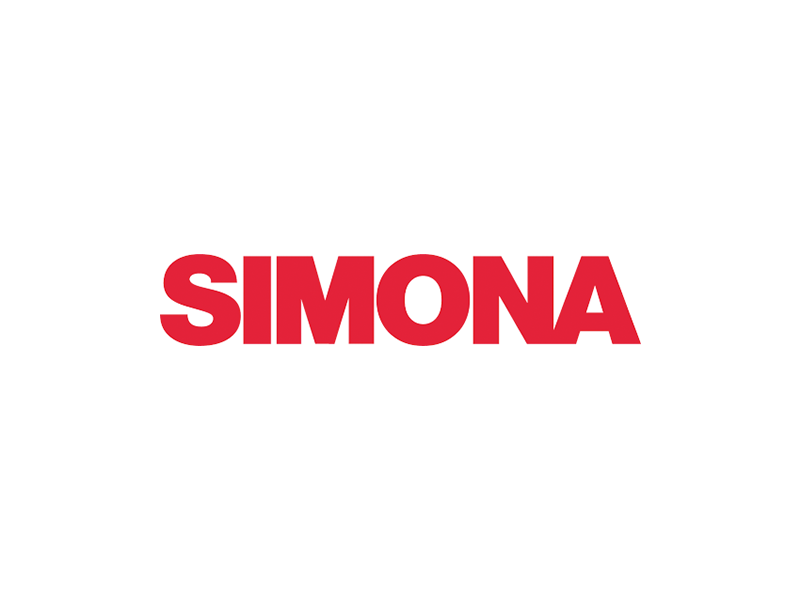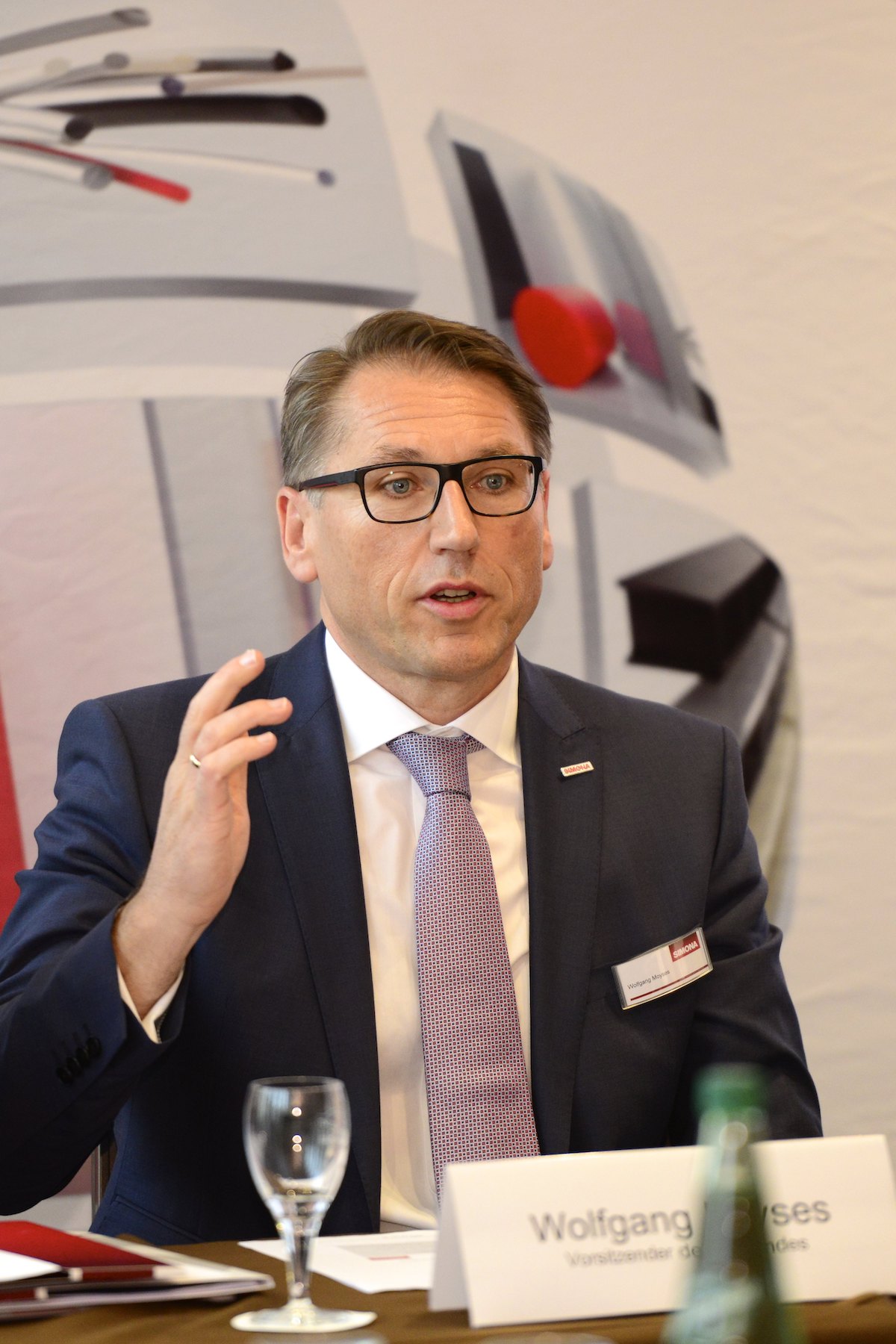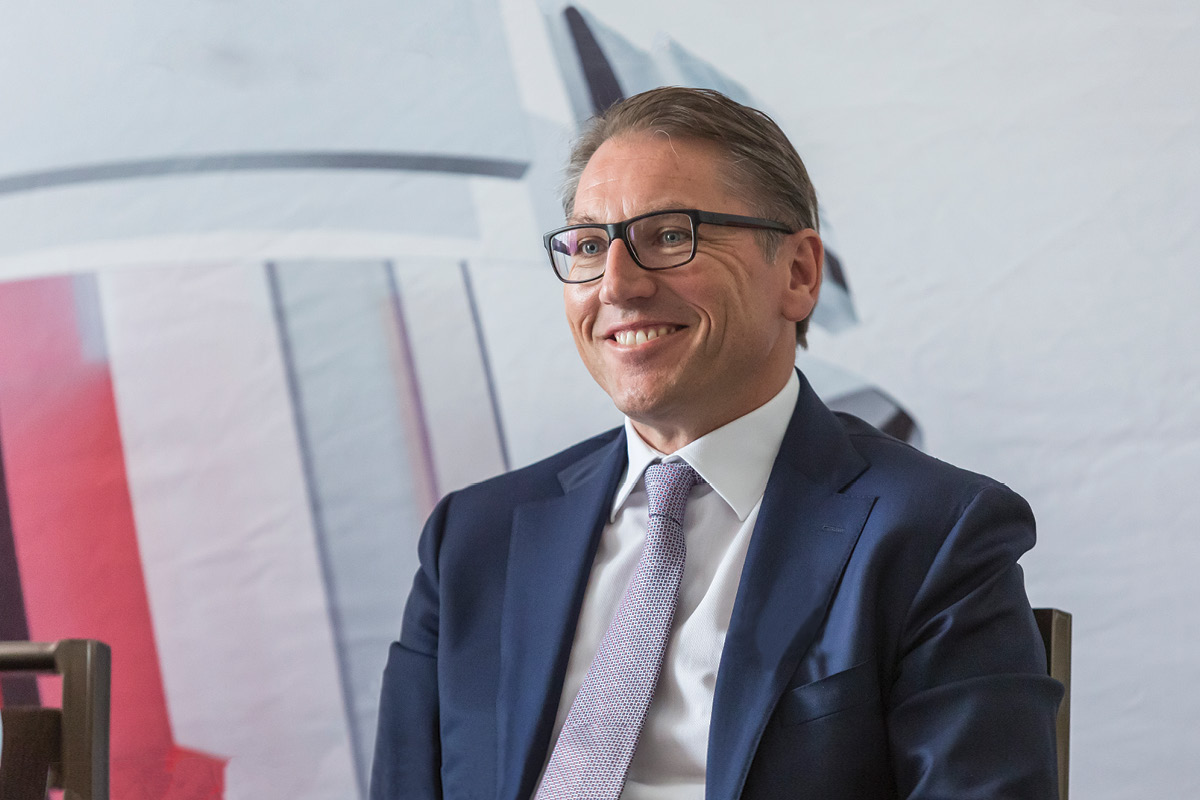SIMONA CEO Wolfgang Moyses believes the culture of a company and how it is perceived is crucial to its performance and, ultimately, its success. “The company culture is something hard to describe to an outsider but is really the DNA of the company, and the customer will clearly tell you whether there is a good culture or a bad culture,” he says.
“We have a very good culture at SIMONA – you can feel it at every angle. Whether you talk to my assistant, the guy at reception or someone in customer service, culture is something you can feel in every contact with the company.”
Wolfgang Moyses is on a mission to modernise
This is something Wolfgang has instilled at SIMONA since coming on board 18 years ago. He started as CFO in 1999 before becoming chairman and then CEO over a 4 year span. His focus has largely been on a campaign to modernise the plastics production company, both inside and out.
“From the beginning, I encouraged SIMONA to have a more strategic approach to the future regarding globalisation, modern processes and the IT environment; to move from being a very traditional company to a more modern one,” he explains.
“Developing talent was one of the things I started to implement because I wanted the company to become more international and to train people to speak English, which was not very common at the time. Those were the main things. My strategy was for us to look outside and to understand what was happening in the world around us.”
Being good at judging people and their strengths, while allowing them the responsibility needed to thrive, is something Wolfgang felt was essential for the future growth of the business. “Talent was a very important thing for our company – to generate enough young talent, to train that talent and give them responsibility at an early stage,” he adds.
Developing SIMONA’s global footprint
Wolfgang believes his own key attributes include being a good communicator, someone who enjoys talking to people, and a good analyst, which means he is able to assess and determine the best way forward for his people and the company as a whole.
“I think I’m also pretty good at decision-making and giving responsibility to people. Only make the decisions you actually need to make and leave the rest of the decisions to your people,” he advises.
Wolfgang’s route to SIMONA

Wolfgang Moyses showed a flair for sales early in his career. He was fast-tracked through financial management roles in the automotive and furniture manufacturing industries before landing at SIMONA in 1999.
A 9 year stint at German filtration giant Mann + Hummel gave him experience in a variety of roles, from financial controller to project manager and head of a worldwide division, before he was headhunted to plastics company SIMONA – another new direction for the talented CEO.
In his almost 20-year tenure at SIMONA, Wolfgang has witnessed the globalisation of the business, which has extended far beyond its German and European markets to now encompass America, Asia and other regions. Where once 50% of sales were from Germany, now 30% come from Asia and the US.
Only make the decisions you actually need to make and leave the rest of the decisions to your people.
The company also extends into India and Russia, and has manufacturing plants in the US, China and the Czech Republic. “Our global footprint is definitely different to what it was 50 years ago. We needed to be a truly global company and to tap into international businesses,” he says.
No shying away from challenges
Going forward, Wolfgang says SIMONA’s focus will be on China as it upgrades its production facilities and technology and builds product awareness.

China is a formidable market, but he believes there’s no point in shying away from the challenges it presents. “China will continue to grow and will be, whether in 5 years or 10 years time, the biggest economy on earth,” he says.
Technology has helped to make production more efficient, but Wolfgang admits there are other continuing challenges for SIMONA, such as market-pricing consistency for valuable materials and the need to further explore additional industries to access their products.
“Nowadays we have plastics in nearly every part of our daily life. I think that has also changed over the years, to a great degree,” he adds. And this can only be good for business.



